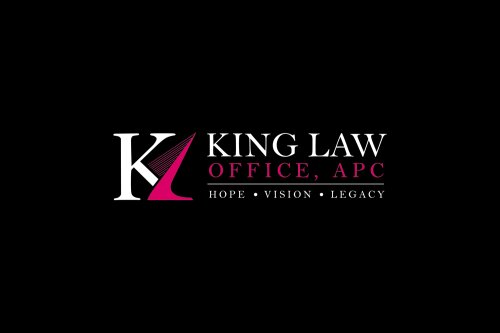Best Venture Capital Lawyers in United States
Share your needs with us, get contacted by law firms.
Free. Takes 2 min.
Or refine your search by selecting a city:
List of the best lawyers in United States
About Venture Capital Law in United States
Venture Capital (VC) law in the United States is a specialized subset of corporate law that facilitates the process of private equity investment in early-stage, growth-oriented companies. The U.S. is one of the leading markets for venture capital, providing financial backing to innovative startups in technology, biotechnology, and other high-growth sectors. VC law involves structuring investments, negotiating terms, protecting intellectual property, and ensuring compliance with securities regulations. Given the complex and dynamic nature of such investments, VC law requires a thorough understanding of both finance and applicable legal frameworks.
Why You May Need a Lawyer
Engaging a lawyer skilled in venture capital can be crucial in several scenarios:
- Structuring Investment Deals: Lawyers help in drafting and negotiating term sheets and investment agreements to ensure favorable terms.
- Compliance: Ensuring compliance with federal and state securities laws, as well as corporate governance standards.
- Intellectual Property Protection: Protecting innovations and proprietary information, vital for startups seeking VC.
- Resolving Disputes: Addressing any legal conflicts that arise between investors, founders, and other stakeholders.
- Advisory Services: Providing strategic advice on legal risks, exit strategies, and funding rounds.
Local Laws Overview
Venture Capital is governed by a body of federal and state-specific laws, including:
- Securities Laws: These include regulations set by the U.S. Securities and Exchange Commission (SEC) such as the Securities Act of 1933 and the Investment Company Act of 1940.
- Corporate Laws: State laws that govern corporation formation and operation, such as the Delaware General Corporation Law, are crucial as many startups incorporate there for its favorable corporate environment.
- Tax Considerations: Federal and state tax regulations affect the structuring of VC deals and eventual exits.
- Intellectual Property Law: IP laws ensure protection and licensing of inventions, a critical aspect for tech startups.
Frequently Asked Questions
What is Venture Capital?
Venture capital is a form of private equity financing provided by investors to early-stage companies with high growth potential in exchange for equity stakes.
Why do companies seek venture capital?
Companies seek venture capital to obtain funding that allows them to grow rapidly, develop products, and scale operations without relying on loans.
What is a term sheet?
A term sheet is a non-binding document outlining the basic terms and conditions under which an investment will be made.
How are venture capital deals usually structured?
VC deals are often structured through equity investments, convertible notes, or SAFE notes, each with their own implications for control and ownership.
What steps are involved in a venture capital investment process?
The process usually involves deal sourcing, due diligence, negotiation, term sheet issuance, legal documentation, and closing.
How do investors evaluate startups?
Investors evaluate startups based on the team, product-market fit, traction, financial projections, and potential return on investment.
What are the common exit strategies for VCs?
Common exit strategies include initial public offerings (IPOs), mergers and acquisitions (M&A), and secondary sales.
What role does a legal advisor play in venture capital?
A legal advisor provides expertise in drafting agreements, ensuring compliance, protecting IP, and guiding the business through regulatory challenges.
Do all startups need venture capital?
No, not all startups need or are suitable for venture capital. Some might choose bootstrapping, angel investors, or loans as alternative funding sources.
What is a SAFE note?
A SAFE (Simple Agreement for Future Equity) note is an agreement designed to provide a startup capital in exchange for future equity without specific valuation during the funding round.
Additional Resources
For further information on venture capital in the U.S., consider these resources:
- U.S. Securities and Exchange Commission (SEC): Information on securities regulations and compliance.
- The National Venture Capital Association (NVCA): Provides industry statistics and policy advocacy for VC firms.
- State Corporate Law Guides: Available through the Delaware Division of Corporations and similar bodies in other states.
- Publications: Numerous books and online resources offer insights into venture capital dynamics and legal frameworks.
Next Steps
If you require legal assistance in venture capital, consider the following steps:
- Identify the specific legal issue or question you have regarding venture capital.
- Research attorneys or law firms that specialize in venture capital in your area or state.
- Schedule consultations to discuss your needs, the lawyer's experience, and their approach to handling VC matters.
- Ensure the attorney is familiar with both state and federal regulations affecting venture capital.
- Engage a lawyer who offers transparent fees and has a proven track record in handling cases similar to yours.
Lawzana helps you find the best lawyers and law firms in United States through a curated and pre-screened list of qualified legal professionals. Our platform offers rankings and detailed profiles of attorneys and law firms, allowing you to compare based on practice areas, including Venture Capital, experience, and client feedback.
Each profile includes a description of the firm's areas of practice, client reviews, team members and partners, year of establishment, spoken languages, office locations, contact information, social media presence, and any published articles or resources. Most firms on our platform speak English and are experienced in both local and international legal matters.
Get a quote from top-rated law firms in United States — quickly, securely, and without unnecessary hassle.
Disclaimer:
The information provided on this page is for general informational purposes only and does not constitute legal advice. While we strive to ensure the accuracy and relevance of the content, legal information may change over time, and interpretations of the law can vary. You should always consult with a qualified legal professional for advice specific to your situation.
We disclaim all liability for actions taken or not taken based on the content of this page. If you believe any information is incorrect or outdated, please contact us, and we will review and update it where appropriate.
Browse venture capital law firms by state in United States
Refine your search by selecting a state.

















